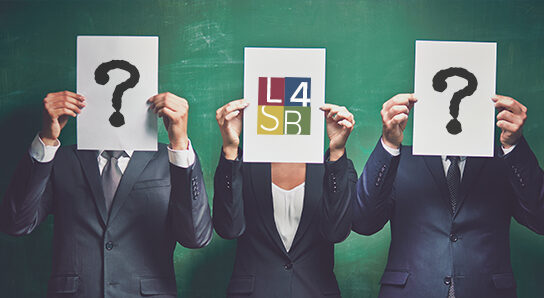If you are like me, you probably don’t like to think about death very much, but you have probably been told that it is important to have a will or a trust or an estate plan so that your family, pets, expenses, businesses, and belongings are taken care of. This post is meant to be a quick overview of the vocabulary you have probably heard around estates so that you know where to start in making your own plan.
Let’s start with an estate. You don’t technically have an estate until you die or become subject to a guardianship or conservatorship. (It’s still completely fine to call your moving sale an “estate sale” though!) The estate is just all of the money, real estate, and other things someone owned when they died.
Estate planning is writing out what you want to have happen with your belongings, debts, remains, kids, pets, etc.
Wills and Trusts are the main things we talk about when we talk about estate planning even though we should also talk about advance directives, living wills, and powers of attorney.
A will is a document that you leave that nominates a person you trust to be your personal representative (a few jurisdictions still call this person an executor) and tells them what to do with your estate. Your personal representative can transfer your bank accounts into an estate bank account, pay your debts or refuse to pay your debts under specific circumstances, gather your belongings, sell your belongings, and, ultimately, distribute your estate to your devisees according to the instructions you have left in your will. (Devisee is a bonus word in here. It is a person who gets a bequest (gift) in a will. Most people call these heirs. Heirs are technically the people who inherit your stuff if you don’t leave a will, but no one is going to be confused if you call devisees “heirs.”)
A trust is a document that you leave if you need to give an extra layer of protection either to the person you are giving your assets or business interests to or to the property you are giving away. The way a trust provides protection is by putting someone with special skills or knowledge in charge of the property for the benefit of the people you designate. That way, if a child or a person with a disability that would affect their ability to manage the gift or a person who isn’t qualified to handle your property stands to inherit it, you can put someone else in charge of handling the property for them. For a more detailed introduction to trusts see [What Exactly Is A Trust]. The person you designate to be in charge of the asset is called a trustee and the person, people, pets, or things the trustee administers the trust for are called the beneficiaries.
What about probate? Probate is the process by which your stuff goes to new owners after you die. The courts administer and supervise probates, and some jurisdictions have special probate courts and probate judges. Probate is usually unsupervised, and your personal representative submits the forms to the court, but the judge doesn’t scrutinize them. If there is a fight over your stuff, then there may be supervised probate where the judge becomes more involved. A probate may change from unsupervised to supervised if there is a will contest – when an heir or devisee objects to the will. The common reasons to object to a will are undue influence and lack of testamentary capacity.
What happens if you die without a will? If you don’t leave a will, there is a statute in your state called an intestacy statute. It will have instructions for who has priority to serve as your personal representative and who will inherit your stuff. The people who inherit your stuff under the intestacy statute are your heirs.
You might have heard that you want to avoid probate. Probate avoidance is an estate planning strategy to keep your stuff out of probate by transferring it while you are alive. You will likely set up a living trust or inter vivos trust (that’s just living trust in half Latin). A living trust is a trust you make when you are alive to transfer your assets into so that you don’t own them when you die, your trust does. You will be the trustee and likely also the beneficiary of the trust while you are alive, and the trust will provide for a successor trustee in case you become unable to be the trustee. Probate avoidance has some benefits and drawbacks. It can give you more control over what happens with your assets, and it prevents someone from having to act as your personal representative. However, it also can have negative tax consequences, and is frequently not done completely, so there has to be a probate anyway.
Some assets pass outside of probate on their own. You may have been asked to provide a beneficiary designation on a life insurance policy. A policy with a beneficiary designation will pass to your beneficiary as soon as the policyholder dies and won’t have to go through probate. Transferable on death and payable on death accounts also transfer outside of probate as do transfer on death deeds if your jurisdiction has them. Additionally, if you own your home or joint bank account with someone else, and it says joint tenants with right of survivorship or JTWROS for short, then that account or real estate will pass to the surviving joint tenant immediately upon the death of the other joint owner.
What about those other things advance directives and stuff? An advance directive is an umbrella term for instructions you leave for your medical care if you are unable to communicate your wishes. The advance directive usually includes a living will and a healthcare proxy or medical decision maker designation. The living will is a set of instructions you leave stating what medical interventions you want done to you if you are unlikely to recover from the condition you are suffering from. The healthcare proxy or medical decision maker designation name a person or group of people who you want to make the decisions about your medical care if you are unable to. It is very important, in addition to having an advance directive, that you communicate your wishes to your loved ones, preferably in the middle of Thanksgiving dinner.
Another important document is a power of attorney. A power of attorney is a document that allows you to name a person who can do acts as if they are you. The person who signs the power of attorney is called the principal. The person who gets to act for the principal is called the attorney-in-fact or more generally, they are your agent. Lawyers use powers of attorney in all sorts of contexts. In the estate planning context, we will often prepare a durable power of attorney. A normal power of attorney becomes ineffective if the principal becomes incapacitated. A durable power of attorney is the opposite. It only goes into effect if the principal becomes incapacitated. The durable power of attorney allows your attorney-in-fact to pay your bills, sign contracts, run your business, collect money that is owed to you, and do anything else you allow. The durable power of attorney is an often overlooked estate planning document, but it is absolutely vital if someone needs to pay your rent or your medical bills while the principal is in surgery or a coma. All powers of attorney become ineffective upon death, so they don’t help once the principal has died.
I hope this quick vocabulary overview helps if you are wondering where to start with your estate plan or if you are just starting a probate process!
Law 4 Small Business, P.C. (L4SB). A little law now can save a lot later. A Slingshot company.




